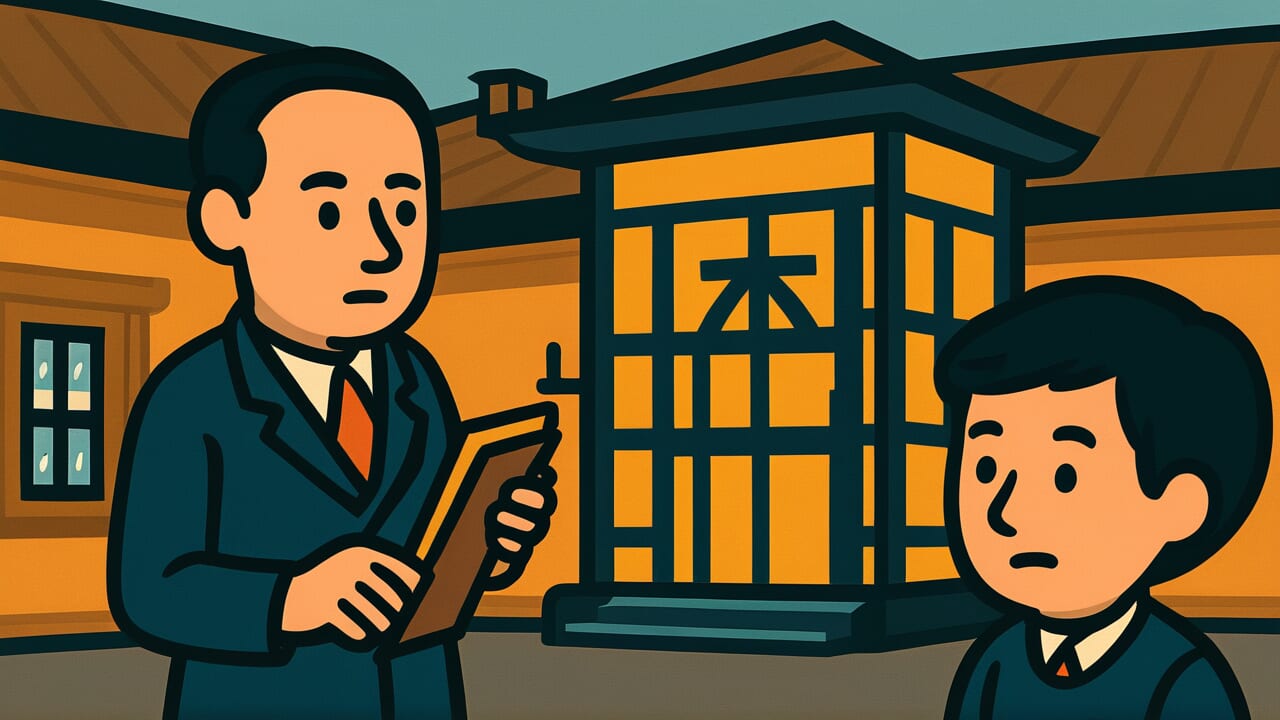How to Read “A strict household has no unruly servants”
Genka ni wa kanryo nashi
Meaning of “A strict household has no unruly servants”
“A strict household has no unruly servants” means that bad children don’t grow up in strict families. It shows that households with proper discipline and solid upbringing don’t produce children who stray from the right path or cause problems.
This proverb is used when discussing the importance of strictness in family education. It presents the idea that not just spoiling children, but sometimes scolding them firmly and showing them the right path leads to their healthy growth.
When parents interact with a resolute attitude and clearly teach standards of right and wrong, children develop self-control and a sense of responsibility.
Today, people often debate the balance between strictness and affection. But what this proverb conveys is not mere harshness.
It’s the universal truth that an environment with consistent values and discipline raises people properly.
Origin and Etymology
Clear written records about this proverb’s origin are limited. However, we can make interesting observations from how the words are constructed.
“Genka” means a strict family or a disciplined household. The word “kanryo” is rarely used today.
“Kan” means stick or pole, while “ryo” refers to a captive or slave. This combination is thought to express someone who doesn’t follow rules, acts rebelliously, or strays from the proper path.
The background likely includes Chinese classical thought, especially Confucian views on education. Confucianism emphasized the father’s authority in the household and strict education.
In Japan during the Edo period, especially in samurai society, people widely believed that strict family precepts and household discipline were essential for children’s character formation.
This proverb likely came into use during that historical period as a saying about the importance of family education.
It expresses in simple words the educational view that true affection exists within strictness, and that this guides children to the right path.
Usage Examples
- That family proves that a strict household has no unruly servants—all their children have grown up admirably
- My grandfather raised us with the belief that a strict household has no unruly servants
Universal Wisdom
Behind why “A strict household has no unruly servants” has been passed down lies the critical importance of environment in human growth. Why do people need discipline? Because freedom and neglect are completely different things.
Children aren’t born with standards for judging right and wrong. Through the attitudes adults show them, the boundaries between acceptable and unacceptable behavior, and daily accumulation of such experiences, people form their internal norms.
A strict household isn’t a cold place without affection. Rather, it’s a place where adults face children with clear values and consistent attitudes.
Humans actually have an instinct to seek boundaries. In environments where what’s permitted and what’s right remain unclear, people feel anxious and sometimes act out to test limits.
Strictness means clearly showing those boundaries, and this gives children a sense of security.
What this proverb shows is the essence of affection. True affection means sometimes being strict, sometimes steeling your heart, and showing the right path while thinking of the other person’s future.
When AI Hears This
From a systems theory perspective, children raised in overly strict households often cause problems due to “external control dependency.” Normally, biological or mechanical systems have mechanisms to monitor and correct their own states.
For example, in body temperature regulation, when hot, you naturally sweat to cool down. This is internal feedback.
However, in excessively strict environments, whenever a child tries to do something, parents intervene first saying “Don’t do that” or “Do it this way.” In other words, only external correction signals operate.
Then the “circuits for judging and adjusting independently” don’t develop in the child’s brain. Because there’s no need to use them. Like muscles, functions that aren’t used don’t develop.
In engineering, systems that rely only on external control are known to be very fragile. The moment sensors break or control devices detach, the system goes haywire.
Children separated from parents as external control devices are the same. Because internal mechanisms for monitoring their behavior, predicting results, and making corrections are underdeveloped, they suddenly become like cars without brakes.
What’s interesting is that moderate failure experiences actually develop internal feedback circuits. Children deprived of opportunities to learn from small failures can’t develop the ability to learn even from big failures.
Lessons for Today
What this proverb teaches us today is that we shouldn’t confuse freedom with neglect. Modern society emphasizes respecting individuality and fostering independence, but that’s different from permitting everything.
If you’re in a position to guide people as a parent, educator, or organizational leader, remember the importance of having clear standards.
What’s permitted and what’s not—making those boundaries unclear confuses and worries people. Sometimes being strict becomes true kindness.
The same applies to yourself. If you’re lenient with yourself and live without discipline, you won’t achieve the future you want. Being strict with yourself is also a way of valuing yourself.
Strictness is something you can show precisely because you believe in the other person’s potential.
Have the courage to sometimes express the kindness within you in the form of strictness. That becomes the power to help both yourself and your loved ones grow.



Comments